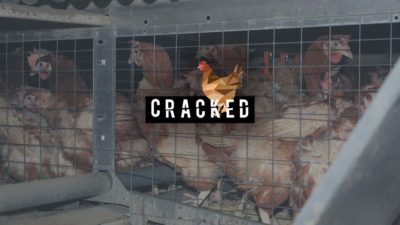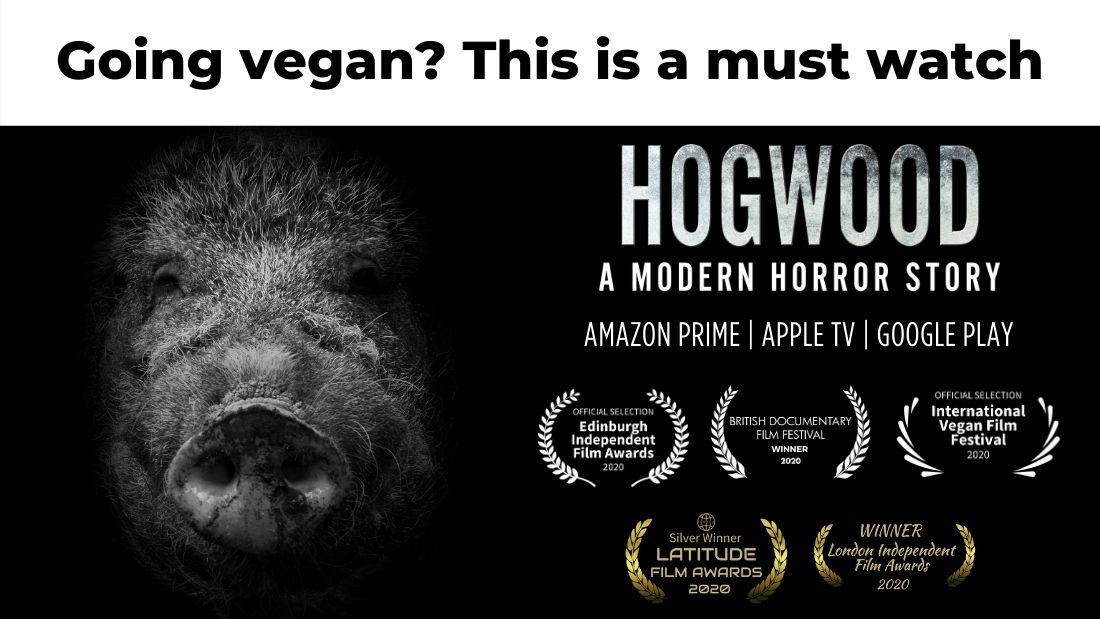Why go vegan?
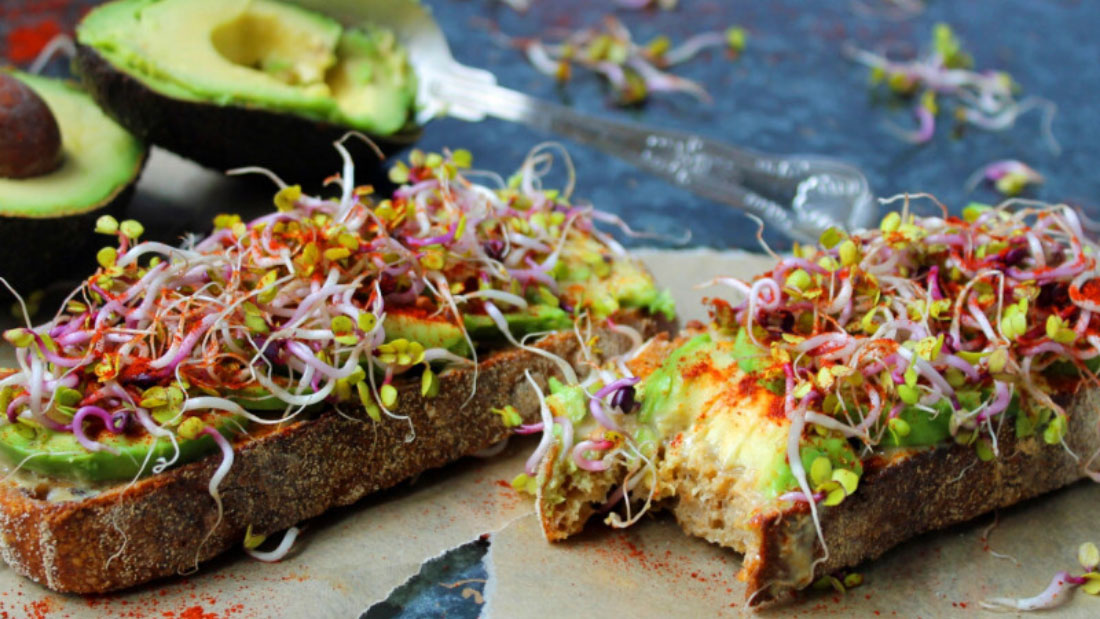
People choose to go vegan for many reasons — namely for the animals, the planet and their health. Going vegan means you will help to reduce animal suffering on an immense scale. You will actively reduce environmental destruction and take us one step closer to solving world hunger. All the while improving your own health and reducing the chance of newly emerging infectious diseases — it really is that simple! Whatever your reason might be for going vegan, Viva! are here to support you at every step on your journey.
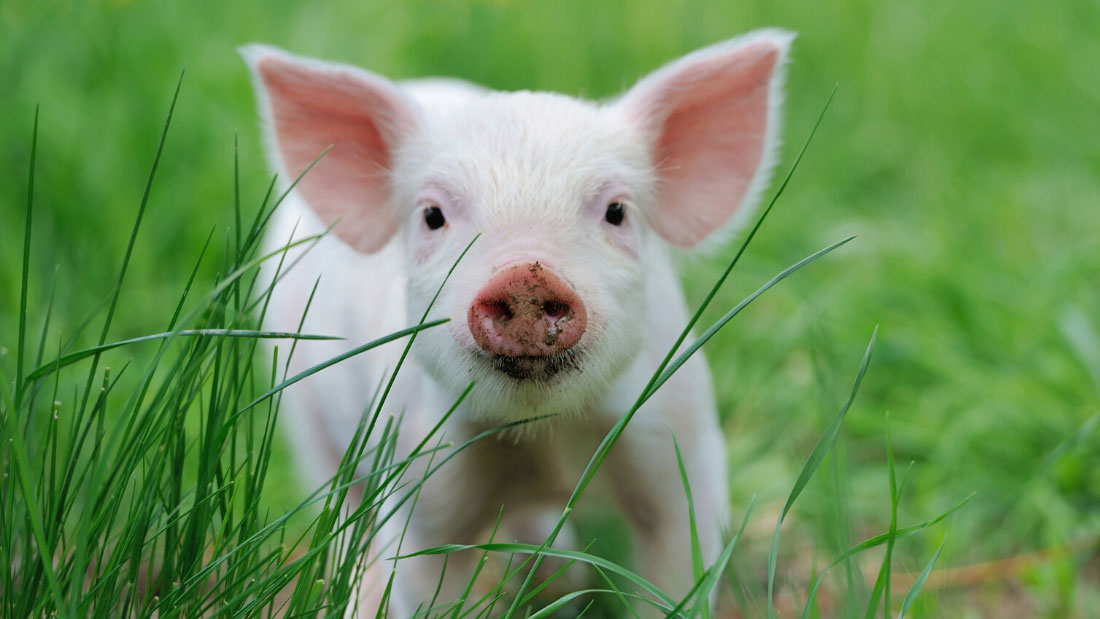
Cruelty and suffering is an endemic part of animal farming. You simply cannot breed, raise and slaughter animals without causing harm. Killing is, of course, the ultimate harm. These ethical concerns are across the board — whether you buy free-range or organic meat, dairy and eggs.
Head to our animals section to find out more
- Beef cows: beef cows are bred simply to eat, get big and die. They gain weight quickly and are ready for slaughter at only 11 to 12 months old. During the first week of their lives they are usually castrated and have their horn buds chemically burnt out without anaesthetic. To put weight on before slaughter they are crammed into fattening sheds with little room to move.
- Dairy cows: cows don’t produce milk ‘automatically’. Just like every other mammal, including us, they only produce milk to nurse their young. So, they have to give birth in order to produce milk and — despite the strong bond between mother and baby cow — the babies are forcibly taken away from them. Male calves are useless to the dairy industry and are usually shot at birth. Female calves will replace their mothers in the milking herd, giving birth, producing milk, and living short, miserable lives with a whole host of health and welfare issues.
- Meat chickens: every day in the UK, 2.5 million chickens are slaughtered for meat – that’s 30 deaths every second. Chickens are thinking, feeling animals who, like most birds, love and care for their young. Most of the chickens killed for meat never see the light of day. Their six week life is spent inside a windowless shed with 30-40,000 other chickens, each with only a space the size of an A4 sheet of paper. Selectively bred to reach ‘slaughter size’ in just 41 days, these poor chickens grow at an accelerated rate — faster than their bodies can handle. This cripples their bodies, leaving many unable to reach food or water.
- Egg-laying chickens: in the wild, hens would only lay 20 eggs in a year, but on modern-day units hens are subjected to near constant lighting and fed high protein feed to increase egg production so they produce over 300 eggs a year. But that’s not the only thing that’s wrong with egg production. Cruel practices such as break trimming (without anaesthetic) is routine on egg farms, regardless of whether the eggs are from caged, organic or free-range birds. Beaks are sensitive and debeaking means the birds can’t preen or explore properly. It is done to reduce feather pecking, a behaviour caused by the poor environmental conditions. The hens are killed for cheap meat as soon as their productivity falls. Male chicks are useless to the industry and are killed shortly after birth.
- Pigs: Pigs are just as intelligent, if not more intelligent, than dogs. Yet most pigs bred for meat are kept in intensive factory farms, unable to express their natural behaviours. Pigs are crammed into overcrowded sheds on hard floors with nothing to do. Most mother pigs are restrained in farrowing crates to give birth, barely able to move for up to five weeks at a time. The piglets are weaned at just 3-4 weeks old, far too soon for their small bodies, leading to severe diarrhoea and digestive problems. As a result, they are fed a daily regime of drugs and antibiotics which has led to the development of superbugs. Many piglets also suffer major types of mutilations, including ‘teeth clipping’ and ‘tail docking’ – both without anaesthetic. They are killed when they are just 5-6 months old.
These animals do not belong to us. They do not want to die. All animals kept for profit are exploited in one way or another: the only way to ensure that animals are not harmed is to ensure they are not farmed at all. Being vegan means stepping outside of the circle of exploitation and standing up for animals.
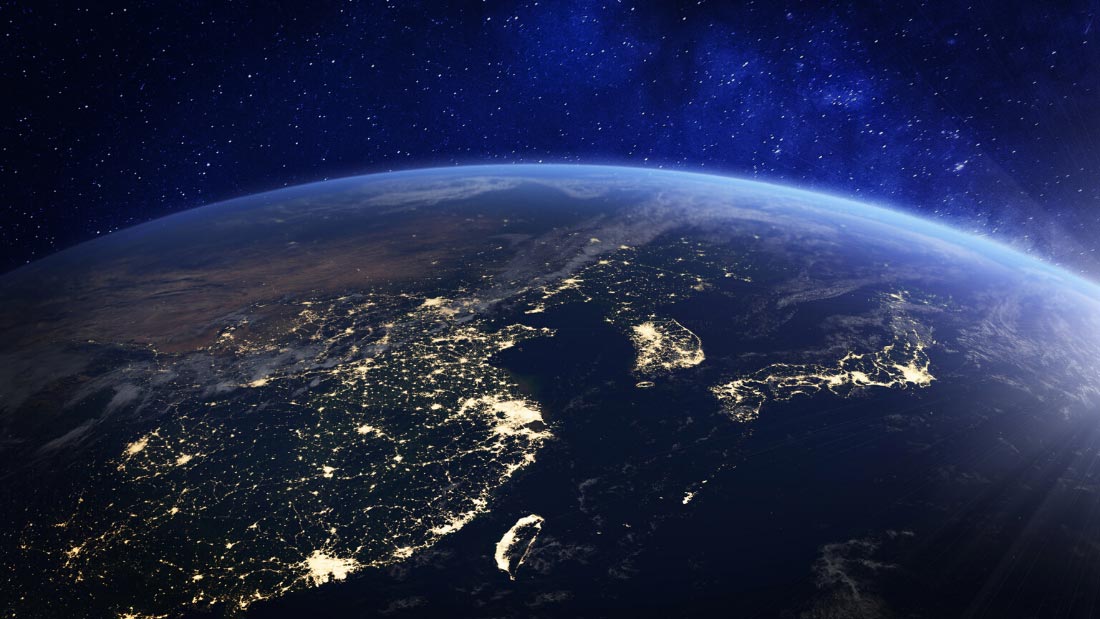
Visit our planet section for more information
The impact of eating animal products reaches far beyond the cow that you’re eating. Animal farming is at the heart of the climate crisis. It is contributing to the world’s sixth mass extinction1Ceballos, G., Ehrlich, P.R. and Dirzo, R. (2017). Biological annihilation via the ongoing sixth mass extinction signaled by vertebrate population losses and declines. Proceedings of the National Academy of Sciences, 114(30), pp.E6089–E6096. and hurtling us towards a catastrophic temperature rise of up to 5°C by the end of this century.2IPCC, 2014: Climate Change 2014: Synthesis Report, Summary for Policymakers. https://www.ipcc.ch/report/ar5/syr Additionally, although most people assume that industry and traffic are the main causes of air pollution, agriculture is the single biggest cause of air pollution in Europe,3Bauer SE, K Tsigaridis and R Miller. 2016. Significant atmospheric aerosol pollution caused by world food cultivation. Geophysical. Research. Letters. 43, 5394-5400. EPA. 2017. Particulate Matter (PM) Pollution. www.epa.gov/pmpollution/particulate-matter-pm-basics contributing more than residential energy use or power generation.
We are running out of space to grow food. Three-quarters of the world’s agricultural land is already used for livestock farming4Foley JA, Ramankutty N, Brauman KA, Cassidy ES, Gerber JS, Johnston M, Mueller ND, O’Connell C, Ray DK, West PC, Balzer C, Bennett EM, Carpenter SR, Hill J, Monfreda C, Polasky S, Rockström J, Sheehan J, Siebert S, Tilman D and Zaks DP . 2011. Solutions for a cultivated planet. Nature. 478 (7369) 337-342. and the global population is rising rapidly. A third of the world’s cereal crops are fed to the animals that humans eat.5Government Office for Science. 2011. Foresight Project on Global Food and Farming Futures Synthesis Report C1: Trends in food demand and production. https://assets.publishing.service.gov.uk/government/uploads/system/uploads/attachment_data/file/288329/11-546-future-of-food-and-farming-report.pdf This is a hugely inefficient way of producing food.
But it’s not just land. Animal foods require far more precious water than plant foods. In fact, 70 per cent of the world’s freshwater is used for animal agriculture.6World Watch Institute. 2004. State of the World 2004. WWI Report. http://bibvir2.uqac.ca/archivage/17833301.pdf This could be diverted to grow plants and provide fresh water directly to communities.
The production of meat, fish and dairy is having a disastrous impact on wildlife through overgrazing, overfishing, deforestation, land degradation and desertification – all driven by the insatiable demand for animal foods. Beef production is the biggest driver of deforestation as ‘slash and burn’ agriculture is being used to clear land for growing animal feed and grazing. Much of this deforestation is to grow soya crops — not to feed people, to go into animal feed. In the Amazon rainforest 80 per cent of deforested land is used for cattle grazing.7B. Veiga, J.F. Tourrand, R. Poccard-Chapuis and M.G. Piketty (2002). Cattle Ranching in the Amazon Rainforest. Animal Production in Australia vol. 24: 253-256253. http://www.fao.org/3/xii/0568-b1.htm Going vegan is the best way to combat this destruction.
As food production expands to meet the world’s appetite for meat, dairy and fish, all of these issues continue to intensify and drain our planet’s limited resources. The only way to stop this is to change the way we eat.
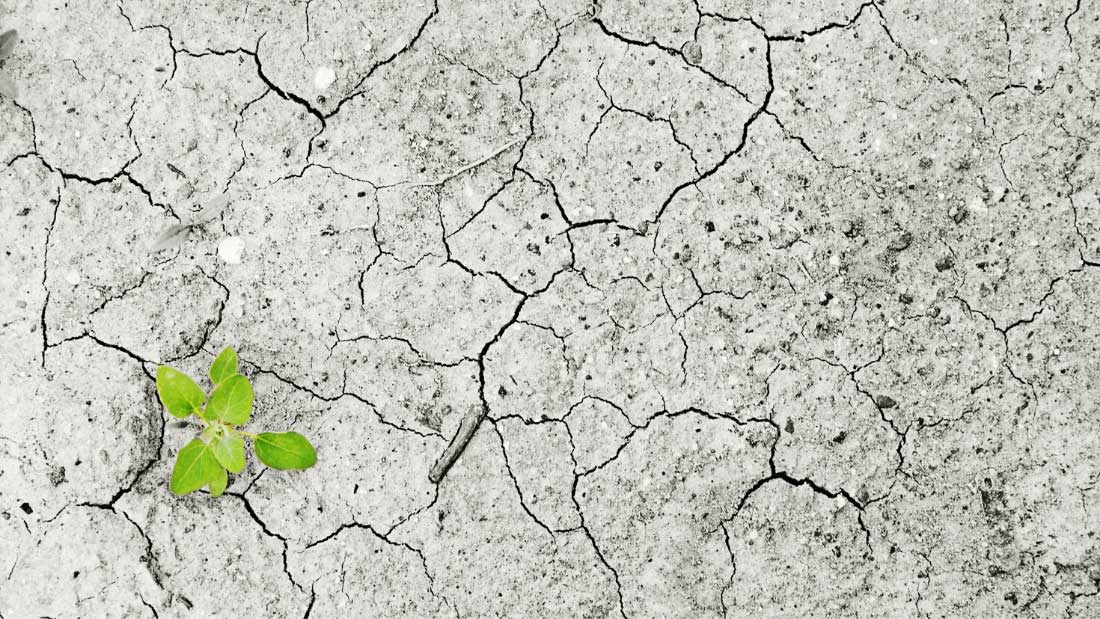
One in nine people in the world today are undernourished,1FAO, IFAD and WFP. 2015. The State of Food Insecurity in the World 2015. http://www.fao.org/3/a-i4646e.pdf yet we feed around a third of our global crop production to animals.2FAO and LEAD. 2006. Livestock’s Long Shadow; Environmental Issues and Options. http://www.fao.org/3/a0701e/a0701e00.htm
If we cut out the middleman and ate the crops ourselves, without feeding it to animals, we could feed an additional four billion people3Emily S Cassidy, Paul C West, James S Gerber and Jonathan A Foley (2013) “Redefining agricultural yields: from tonnes to people nourished per hectare”. Environmental Research Letters. Volume 8; Number 3 https://iopscience.iop.org/article/10.1088/1748-9326/8/3/034015 – more than enough for everyone for years to come!
The rise in antibiotic-resistant bugs is a problem of our own making, a direct consequence of the inappropriate use of antibiotics in livestock farming.
Many farmers routinely use antibiotics to promote growth and prevent disease in healthy animals.4World Health Organization. (2019). WHO list of critically important antimicrobials for human medicine (WHO CIA list). World Health Organization. https://www.who.int/foodsafety/areas_work/antimicrobial-resistance/cia/en/ In some countries, a huge proportion of medically important antibiotics are used in this way.5Review on Antimicrobial Resistance. (2016) “Tackling Drug-Resistant Infections Globally: Final Report and Recommendations” https://amr-review.org/sites/default/files/160525_Final%20paper_with%20cover.pdf In the near future, we may see routine surgeries and easily-preventable infections becoming life-threatening, as they have become resistant to antibiotics. Going vegan is an important step in halting antibiotic resistance.
Pandemics are caused by factory farming or trading in wildlife [link to 3 in 4 section],. Factory farms give viruses and bacteria the perfect breeding grounds to mutate and become more deadly. We are not infected with plant viruses – being vegan is a much safer option for the human race.
Slaughterhouse workers must kill hundreds, if not thousands, of animals each day. This has long-lasting psychological impacts, such as PTSD.
As veganism grows, more and more slaughterhouse and animal agriculture workers are speaking out about the poor working conditions, low wages, hazardous conditions and the psychological impacts of working in these industries. Slaughterhouse work in particular has been linked to PTSD,6Richards E, Signal T, Taylor N. (2013) A different cut? Comparing attitudes towards animals and propensity for aggression within two primary industry cohorts—farmers and meatworkers. Soc and Animals Journal; 21:395–413. https://brill.com/view/journals/soan/21/4/article-p395_5.xml an increase in crime rates, domestic abuse, and drug and alcohol use. As the demand for meat and other animal products increases, so does the number of people directly affected by these harmful industries.

Head to Viva! Health to find out more about vegan nutrition
When it comes to health, vegans have a significantly reduced risk of heart disease, diabetes, dementia and some cancers, with lowered cholesterol and increased energy levels.
Studies show that vegans eat better than any other diet groups, have sufficient intake of all essential nutrients and lower the risk of many diseases. A vegan diet is full of healthy foods that give you plenty of energy, including complex carbohydrates that release their energy gradually and our bodies are made to run on them. So much so that countless athletes have turned to a vegan diet to improve their performance.
Research shows vegans have the best gut bacteria – the most protective, friendly species. On the other hand, meat-eaters have the most toxic bacteria, encouraging inflammation and producing harmful substances. A vegan diet can also help alleviate various bowel conditions and protect from bowel cancer.
A wealth of data shows that vegans are healthier compared to the rest of the population well into advanced age. As a vegan, you’re less likely to die prematurely and of any of the dreaded diseases (such as cancer or heart disease). Additionally, a wholesome vegan diet can decrease your risk of dementia and Alzheimer’s disease.
In conclusion — a balanced, wholefood vegan diet is packed with a wide range of healthy, disease busting foods high in vegetable protein, fibre, complex carbohydrates, vitamins, minerals and good fats. Being vegan also means no damaging animal protein, animal fats, cholesterol, hormones or pus in the diet.

